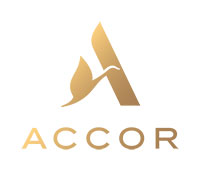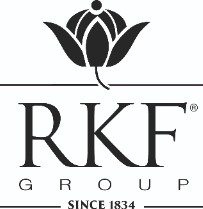
Mandarin Oriental Hotel Group Standardizes Architecture on Microsoft Platform From Desktop to Datacenter
|
 |
Mandarin Oriental Hotel Group Standardizes Architecture on Microsoft Platform From Desktop to Datacenter
|
Catégorie : Monde
Ceci est un communiqué de presse sélectionné par notre comité éditorial et mis en ligne gratuitement le 23-06-2010
Mandarin Oriental embraces Microsoft's approach to cloud computing and the "connected traveler."
Mandarin Oriental Hotel Group today announced that it has standardized its IT architecture exclusively on the Microsoft platform for competitive advantage and to deliver a highly responsive "connected journey" experience for its guests. The announcement was made at the HITEC 2010 conference in Orlando, Fla.
Microsoft Corp.'s approach to cloud computing in hospitality was instrumental to Mandarin Oriental's decision to fully transition to the Microsoft platform. This is part of Mandarin Oriental's overarching strategy to build a highly responsive IT infrastructure with the applications and tools needed to provide personalized guest experiences worldwide.
"We are confident that Microsoft's 'connected travel' approach is the right one for Mandarin Oriental Hotel Group as we move to the cloud," said Nick Price, CIO/vice president, Information Systems, Mandarin Oriental Hotel Group. "After evaluating leading competitive offerings, we have standardized exclusively on Microsoft technologies, which provides us with a single, highly streamlined IT platform that spans the entire organization, from the mobile and digital consumer touch points up through mid- and back-office operations and beyond. We are working with Microsoft and our core ISVs as they enhance their applications to take advantage of Windows Azure so that we can further cost-cutting and consolidation."
Mandarin Oriental has standardized exclusively on Microsoft technologies for more than 10 years and has evolved a single, highly streamlined IT platform that spans the entire organization, from the mobile and digital consumer touch points up through mid- and back-office operations and beyond.
Mandarin Oriental is virtualizing its hotel systems as a key step toward Windows Azure and the public cloud, with plans to implement its first fully virtualized hotel later this year. It has completed the server virtualization stage using Windows Server 2008 R2 with Hyper-V technology and has already realized significant savings, increased systems availability and a reduction of carbon emissions.
Further, Mandarin Oriental is working with PAR Springer-Miller Systems to deploy its next generation hospitality platform on Windows Azure.
Microsoft's Hospitality in the Cloud Strategy
For over a year now, Geoff Cairns, worldwide managing director of Hospitality at Microsoft, and his team have been working with principals from The Gendreau Group (TGG), revenue strategists who focus on helping companies across industries generate additional revenues and value from technologies, products and services. The goal has been to enable the hospitality industry to deliver more value to guests and other customers, and to find more and better ways to interact and transact successfully with each guest across each and every journey. Microsoft's Hospitality in the Cloud strategy has been a primary outcome of this work.
"Microsoft's vision brings into focus what they have dubbed the 'connected journey.' The resulting strategy is focused on changing the travel experience by working with hoteliers and service providers to plan and take actions to overhaul their existing technology environments," said Timothy Gendreau, chief revenue strategist at TGG. "To make this possible, Microsoft has been building an ecosystem of collaborating partners and customers whose commitments underscore that Microsoft's strategy and planned accelerators are both viable and implementable today using Microsoft's existing technologies and products."
Microsoft's hospitality industry ecosystem partners include Agilysys Inc., PAR Springer-Miller Systems, Newmarket International, Red Rock Software Inc., SoftHotel Inc. and SuiteLinq Inc., as well as key customers who provide guidance to the ecosystem through participation in Microsoft's hospitality industry customer advisory board.
"Through these efforts, and with the participation of experts such as Nick Price at Mandarin Oriental Hotel Group, we have developed an actionable cloud strategy for the hospitality industry that includes specific recommendations aimed at enabling hospitality companies to rationalize their core infrastructures, add flexible new functionality, improve their digital marketing and merchandising capabilities, and push IT infrastructure and applications out of their back offices into the cloud, while simultaneously achieving built-in investment protection," Cairns said.
"Our cloud approach for hospitality is also unique in the industry; we are doing much more than simply providing virtualization services and cheap e-mail," Cairns said. "Our strategy is aimed at enabling an industry, not just about creating a technology foundation. Cloud computing is only one dimension. To do this, we are leveraging our integrated stack of cloud-enabling technologies and industry-specific integration capabilities to simplify and provide a consistent platform for development, operations and delivery of cloud services. We are also collaborating with and enabling an ecosystem of partners who are experts in hospitality-specific solutions. Finally, through our massive investments in our worldwide network of datacenters and through partnerships with leading communications providers, we are enabling the cloud itself."
At the HITEC 2010 conference, Microsoft described how partners are cloud-enabling their applications today, and how the company is developing shared services that the developer community can leverage to accelerate their developments. Microsoft's goal is to provide a set of industry-specific shared common services that will allow its independent software vendor community to develop software better, faster and cheaper, without overlap and duplication. Immediate hospitality industry customer benefits include the cost savings from shifting internal routine IT operations to the cloud, allowing companies to reinvest their IT dollars in projects that are truly core to their business.
Benefits from the Microsoft approach to cloud computing for hospitality include immediate operational cost reductions, the opportunity to better allocate capital and other resources, and the ability to accelerate change by engaging an ecosystem of partners with solutions optimized for the Microsoft platform and Windows Azure.
|
|






